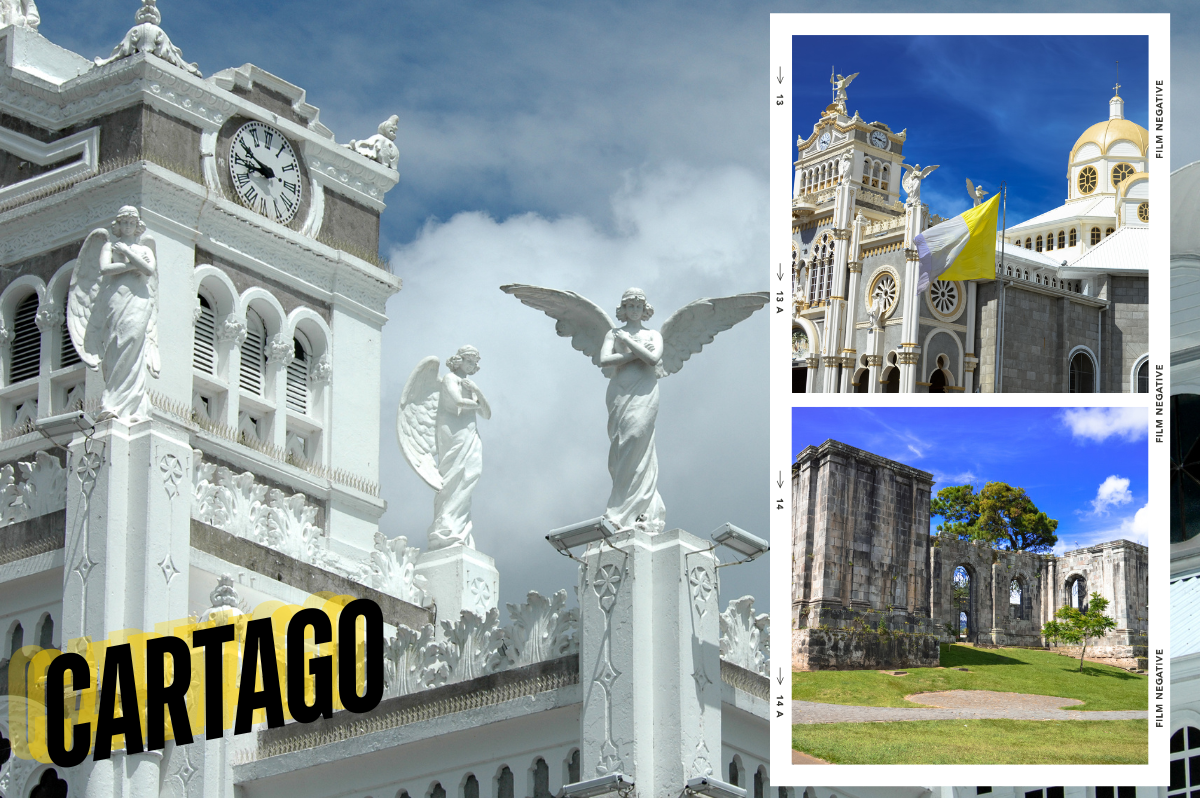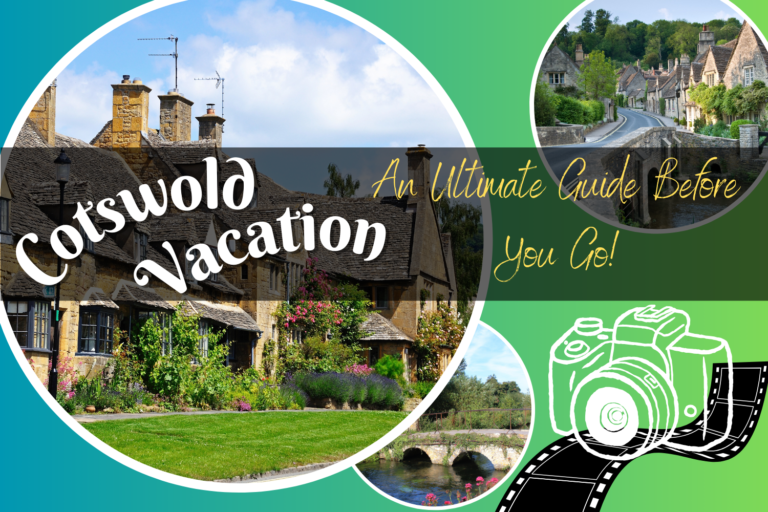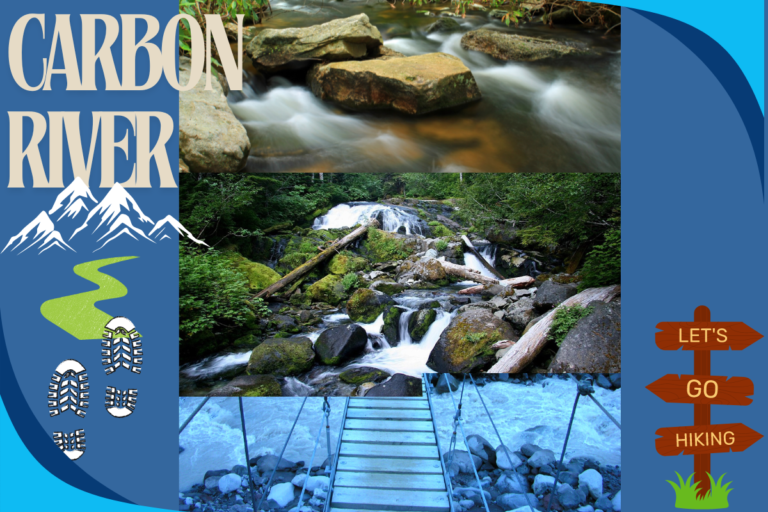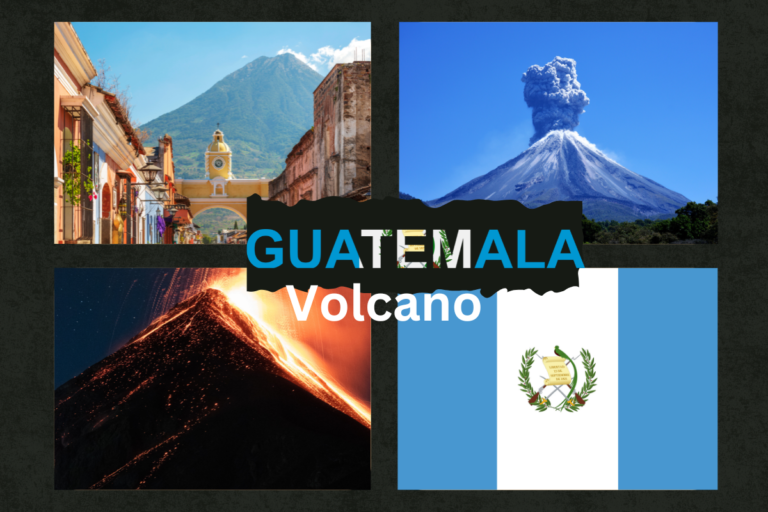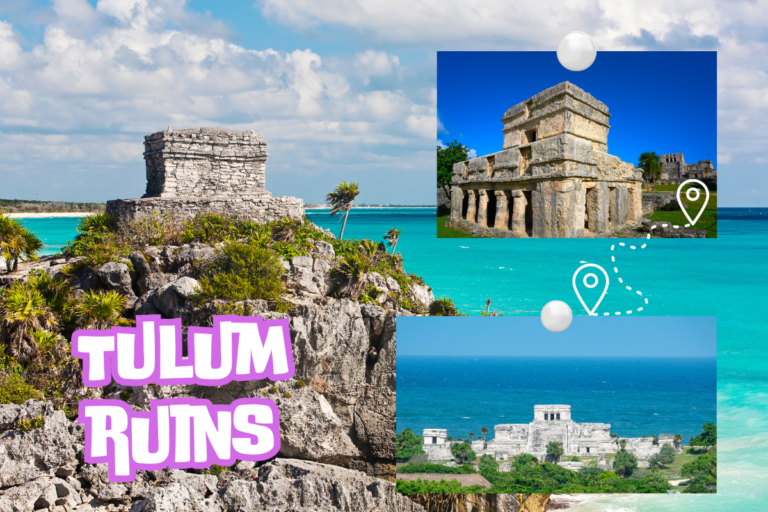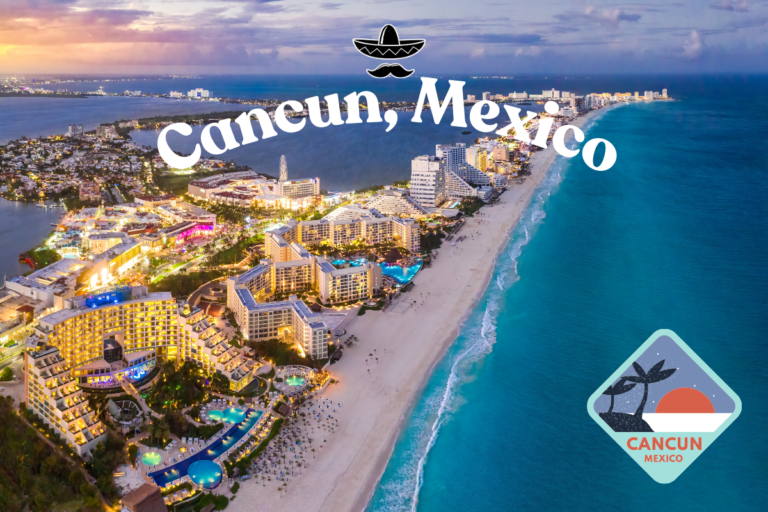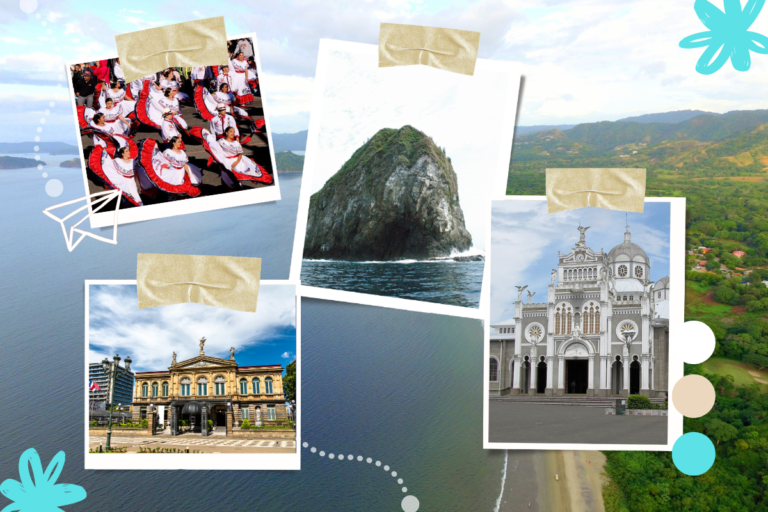Cartago: Everything You Need to Know Before Visiting
Heading to Costa Rica? then don’t miss Cartago one of the best places in Costa Rica. Cartago is bursting with cultural treasures and historical gems!
In the city, you will discover the region’s most iconic spots, while the rest of the province invites you to explore stunning natural landscapes.
Whether you are strolling through streets or venturing forests, there is so much to see and do. Cartago is the capital of Cartago Province in Costa Rica. It is about 20 km from the nation’s capital, San José.
Are you excited for an adventure that blends rich history with stunning scenery? Stay tuned!
What is the best time to visit Cartago?
When you visit Cartago, Costa Rica, the timing depends on what you would like to experience:
February to April: To catch the Lankester Botanical Gardens in full bloom, visit between February and April. During this time, you can also spot tropical birds if you bring along some binoculars.
August: For a truly unique Costa Rican experience, head to Cartago in early August for the celebration of the Virgin of Los Ángeles on August 2nd.
Known locally as El Día de la Negrita, this event attracts large crowds, so make sure to book your accommodation well ahead of time.
How to get to Cartago?
Find out how to get to Cartago, Costa Rica, with options including buses from San José, and routes from Quepos for a smooth trip.
By Bus
From San José:
You can take a bus from C 5, Av 10 in San José to C 6, Av 3 in Cartago. The trip costs around $1–$5, and buses depart every hour and take about 40 minutes.
Paraíso or Orosí:
You will find buses at stops on C 3, between Av 2 and 4, while buses to Cachí depart from Av 3, between C 4 and 6. Remember to check bus stops with a local before you set off.
From Quepos:
If you are traveling from Quepos (XQP) to Cartago, you can catch a bus via San José, with the journey taking around 2 hours and 15 minutes.
By Train
The Tren Urbano commuter train runs between Cartago’s railway station, on Av 6, at C 3, and San José which approximately takes 45 minutes.
Alternatively, you can take the INCOFER train from downtown San José to downtown Cartago, which takes about 52 minutes and costs around $1–$2.
From Heredia: You can travel from Heredia to Cartago by taxi, bus, or car which takes about 1 hour and 22 minutes.
Things to do in Cartago
Find out the top things to do in Cartago, Costa Rica, from exploring gardens to experiencing adventures.
1. Las Ruinas de la Parroquia
This site is one of the most famous landmarks in Cartago. Las Ruinas de la Parroquia in Cartago offers a combination of history and mystery.
The construction of the church was hampered several times because of earthquakes it resumed after some years but was never completed again because of earthquakes.
The ruins are the remains of an unfinished church dedicated to Santiago Apóstol.
Today you will see only the outer walls stand, but the garden within the ruins offers a peaceful spot for a stroll. It’s an ideal place for clicking photos so don’t forget to click some.
2. Durán Sanatorium
Durán Sanatorium located just north of Cartago, Costa Rica, is known for its haunting history. It was established in 1915 and was initially a hospital for patients.
Today it has become a tourist spot. As you explore the broken hallways and crumbling rooms, it gives the vibe of a haunting atmosphere.
The misty environment and isolated location of Durán Sanatorium add a sense of mystery here.
The rumors of paranormal activity make this place more captivating. If you are interested in haunting stories do not forget to visit!
3. Reventazón River
If you are looking for adventure in Cartago the Reventazón River is the ideal destination for you.
This river travels 145 km from its mountainous origins to the Caribbean. This place is famous for rafting you will see many people trying their hand in it.
Whether you are a beginner or an experienced one, you will find spots on the river that match your skill level.
As you move ahead while rafting you will be lost in the breathtaking scenery of the river, rich forests, and mountain views.
4. Lankester Botanical Gardens
The Lankester Botanical Gardens, established in 1973, is one of the most stunning natural spots you can visit. It is located within the University of Costa Rica, known for its unique Japanese design.
It is famous worldwide for its impressive collections of orchids, bromeliads, and other air plants.
The entrance fee here is about $3 (discounts for students), it’s an affordable outing. The gardens are open daily from 9:00 a.m. until 3:30 p.m., though they are closed during New Year’s Day, Easter holiday week and Christmas.
5. Finca La Angelina Bike Park
By any chance you are a mountain bike enthusiast, you are in for a treat with the new Finca La Angelina course! This trail used to be for horses but today it offers a fantastic ride through rich tropical vegetation.
This place is suitable for riders of various skill levels so you can try with no worries. And if you have a competitive mindset Finca La Angelina challenges to beat their best times on the trails.
The course is open on Saturdays and Sundays, as well as during special events. This place is none less than heaven for fitness enthusiasts!
6. Balneario de Aguas Termales Los Patios
In the heart of Cartago, Costa Rica, you will find the Basilica de Nuestra Señora de Los Ángeles, a Roman Catholic church with a classic Byzantine style.
It was established in 1639 and dedicated to the Virgin of Nuestra Señora de Los Ángeles. Unfortunately, the basilica was partially destroyed by an earthquake shortly after its construction.
A restoration project began in 1912 and it took 12 years to complete, finally completed in 1924.
Each August, over 2 million pilgrims embark on a 22-kilometer spiritual journey to the basilica, with many making the pilgrimage on their knees from various parts of Costa Rica.
7. Parque Nacional Volcán Irazú
The Irazú Volcano, located within the national park that bears its name, stands as the tallest volcano in Costa Rica.
Irazú Volcano National Park is part of the Central Volcanic Conservation Area, with the volcano reaching an impressive height of 3,432 meters.
Once you make it to the summit, you will see volcanic terraces that were once calderas. At the volcano area, you will find a visitor center, a scenic overlook, a small coffee shop, and tables where you can relax.
The park is open from 8:00 a.m. to 4:00 p.m., providing plenty of time to explore and take in the stunning surroundings.
If you are looking to explore more volcanoes in Costa Rica you should not miss Poas Volcano located in Alajuela Province.
8. Tapantí National Park
Tapantí National Park is known as one of the wettest places in Costa Rica, located just an hour’s from San José. This vast park is home to some of the world’s most exotic miniature orchids.
If you are a wildlife enthusiast, you will be thrilled by the array of mammals, birds, and reptiles that call Tapantí home.
9. Prusia Forest
The Prusia Forest, located within the Prusia Sector of Irazú Volcano National Park, offers an enchanting experience.
It is located just 30 minutes from Cartago’s city center, this forest is a magical retreat where you can immerse yourself in nature. If you plan to visit, you will need to drive since there is no bus service available.
Once you arrive, you will discover an expansive natural landscape with stunning towering trees, walking trails, lookout points, and diverse wildlife.
It’s the perfect getaway from the city for a day, and if you are traveling with children, the Prusia Forest is a must-visit spot.
10. Plaza Mayor
The Plaza Mayor is a grand and photogenic square located in front of the Ruins of the Temple of Santiago Apostle.
As you take a stroll through the plaza, you will be surrounded by stunning ruins and rich trees that provide the perfect spot to relax on a bench.
It’s a must-visit location during your trip to Cartago, Costa Rica, offering both historical charm and a peaceful retreat.
How many days do you need in Cartago?
A day or two is usually enough to explore Cartago. It’s often a stopover for visiting a few historic sites before you venture out to discover some of Costa Rica’s top natural wonders.
One of the standout attractions is Volcán de Irazú National Park, just 32 km from Cartago. Here, you will encounter Costa Rica’s largest active volcano.
Additionally, Tapantí National Park, located in the Cartago area, offers fantastic opportunities for hiking and wildlife viewing.
Best Restaurants And Accommodations In Cartago
| Restaurant | Accommodation | Type |
| Rosti – Terramall | Reserva Natural Privada Cerro Alto | 2-star hotel |
| Mi Tierra | Hotel Rinconcito Verde | 3-star hotel |
| Rosti – Cartago | Iyok Ami – Madre Tierra | – |
| Woods Pizza & Beer Garden | Hotel y Restaurante El Guarco | 2-star hotel |
| El Novillo Alegre Cartago | Hotel Las Brumas | 3-star hotel |
| Andiamo La | Hotel Quelitales | 3-star hotel |
| Restaurante La Casona Del Cafetal | Grandpas Hotel | – |
Nearby Attractions
Explore nearby attractions in Cartago, Costa Rica: hike the stunning Cerro de la Muerte, wander through the historic Ujarrás Ruins, and enjoy breathtaking views from the Orosí viewpoint.
1. Cerro de la Muerte
Cerro de la Muerte is just a short distance from Cartago and is a stunning natural spot worth exploring.
Here, you can enjoy breathtaking views, diverse indigenous flora, and various activities like horseback riding, and hiking.
It’s recommended to hike to the top for a beautiful view of the lake. A morning hike in the sunshine followed by a picnic in the shade of the trees is a great way to get away from the city.
2. Ujarrás Ruins
The Ruins of Ujarrás located near Paraíso in Cartago, are the remnants of Costa Rica’s first colonial church, dating back to 1575.
As you explore these historic ruins and the surrounding garden, you will discover fascinating stories and enjoy a peaceful atmosphere.
This place offers a glimpse into the past and a lovely spot for a picnic amidst the ruins.
3. Orosí
The Mirador de Orosí is just 5 km from Orosí and offers stunning views of the valley and Río Grande.
It is an ideal spot to escape from Cartago and immerse yourself in nature. You can enjoy here a peaceful day surrounded by rich vegetation and can capture beautiful photos.
It is the perfect place to breathe fresh air and take in the breathtaking scenery of the Orosí Valley.
Tips For Travelling To Cartago, Costa Rica
Here are some tips for traveling to Cartago, Costa Rica:
- Carry mosquito repellent, as there is a tropical climate.
- A reliable mobile data plan is necessary since WiFi may be limited in some areas.
- Ensure you carry enough U.S. dollars, as they are widely accepted.
- Don’t forget travel essentials like a reusable water bottle, sunscreen, and comfortable walking shoes.
FAQs
What is Cartago famous for?
Nevertheless, the main attraction of Cartago could be the Irazú volcano, a splendid giant that still remains active and that, with its five craters, gathers thousands of tourists yearly. It is the volcano found at the highest altitude in the country, 3.432 meters above sea level.
Where is Cartago today?
Tunisia
Today, Carthage is a suburb of Tunis, the capital city of northern Africa’s Tunisia.
Which country is Cartago, Costa Rica?
Cartago, city, east-central Costa Rica. The city lies 4,720 feet (1,439 metres) above sea level in the fertile Valle Central, at the foot of Irazú Volcano. Cartago was founded in 1563 and was the capital of Costa Rica until 1823.

